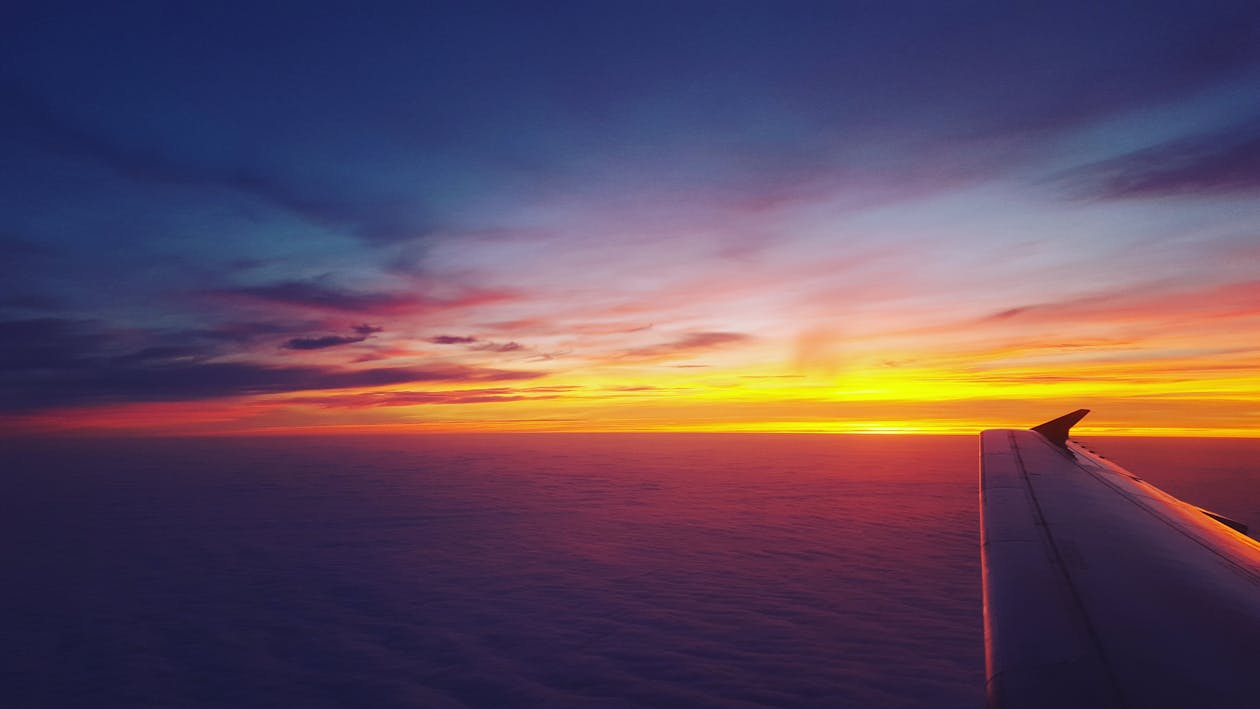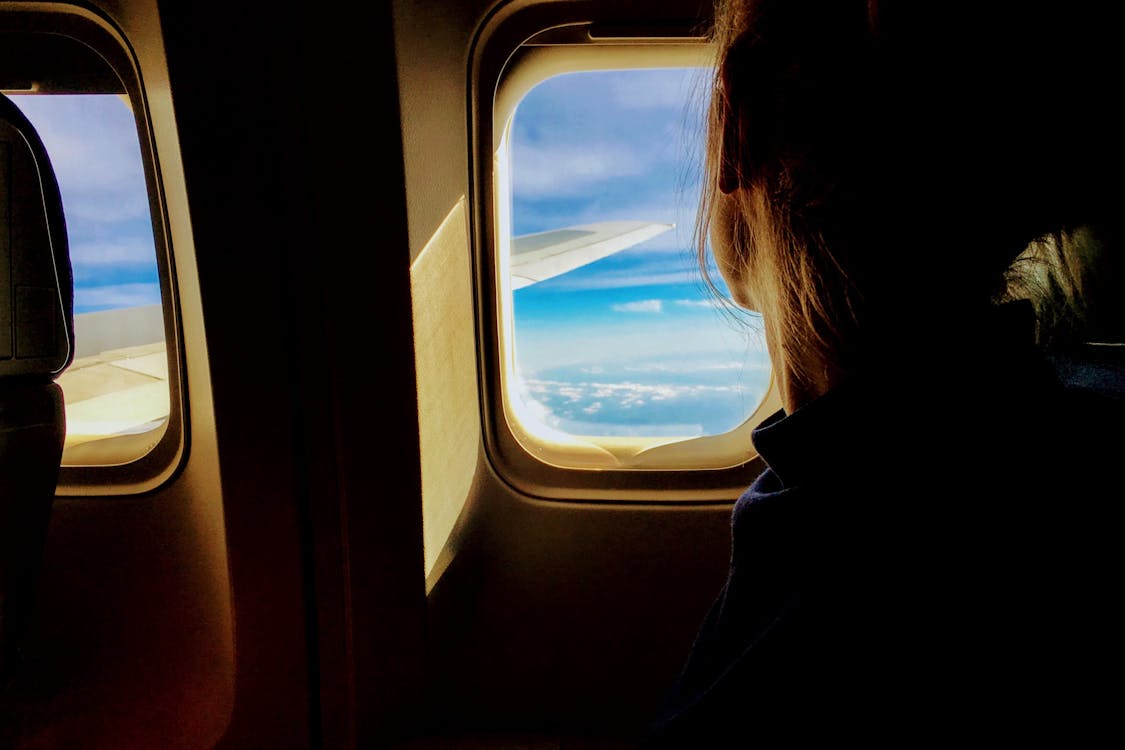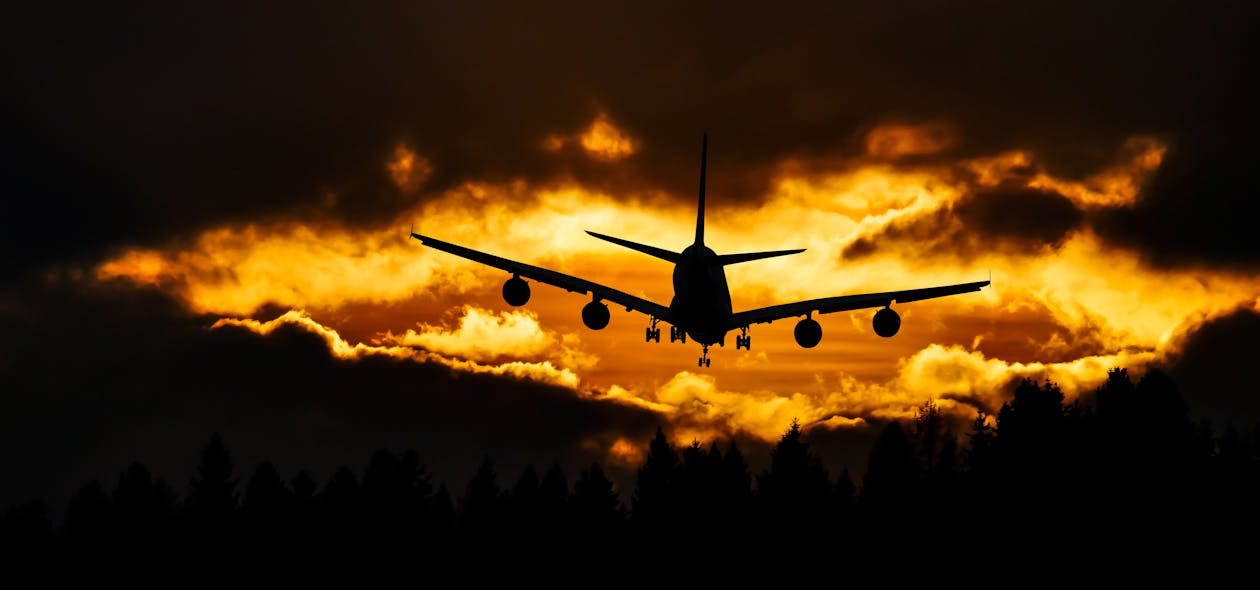
I wrote this blog post because I wanted to research new ideas for this – because I have struggled tremendously with it in the past.
As a traveler, sleeping on the airplane out can improve your entire trip. Here are some expert-approved tips that I found that should help you doze off—no matter which seat on the plane you happen to have.
For many, sleeping on planes is super easy – their eyes shut as soon as the cabin doors do but for others, like me, sleeping while flying is an elusive, awe-inspiring skill that can’t be done. The ability to sleep on planes apparently requires practice; so the first thing I learned is that I must not consider myself, nor should you, as someone who can’t fall asleep on planes because they say it will only make it more difficult to do so.
Resting your head is easier if you’ve been able to get yourself a lay-flat business or first-class bed, but since that’s not in the cards for everyone, hopefully these tips will make any seat feel more cozy. As a traveler, getting rest on the way to your trip is important, especially if you’re taking an overnight flight or a very long flight, want to beat jet lag on arrival, or simply want to have energy to sight-see when you get there! Anne D. Bartolucci, professor at the Emory University School of Medicine & esteemed member of the American Academy of Sleep Medicine, gives us her advice on how to get your body used to dozing off while 10,000 feet above the ground.
Hold back on Drinking (Alcohol, that is)

You might suspect that a glass of wine will help you to sleep, but in reality it can do exactly the opposite. Alcohol may help you fall asleep at first, Bartolucci says, who is not only a licensed psychologist but also a behavioral sleep medicine specialist, and it can dehydrate you & cause you to wake up if you need to go to the bathroom. If you want to drink something that’s not water, opt for a non-caffeinated beverage.
Medicate with Care
For long flights, you think to try something stronger. Bartolucci indicates that if you’ve been prescribed something by your doctor, it’s generally a great idea to try the medication before you’re in the air. Understanding the strength of your medication before your trip will help you get a feel for how much you’ll need when flying and warns that taking too much could create a difficult situation, where you may experience an incredibly drowsy first few days when you arrive.
Snack smart
Chips and pretzels are snack staples, but they’re not great if you’re struggling to sleep. Bartolucci says it’s best to avoid salty snacks and preflight meals completely because they can lead to dehydration. Now, you don’t want to be starving on your flight, since that won’t help you sleep either. Try to eat something mild about 3 hours before your flight, such as bananas, nuts, or complex carbs like oatmeal or sweet potatoes help sleep, according to the National Sleep Foundation.
Be comfortable
It’s a blessing that you’re no longer expected to wear your finest fancy-wear to the airport—especially during longer, international flights. Layers are recommended because cabin temperature can be all over the place. Bartolucci suggests an extra pair of socks to keep your feet warm plus a jacket or hoodie that you can fold up & use like a travel pillow for lower back support. Also think about wearing looser or stretchy clothes, since you’ll be sitting for a good while & won’t want to be constricted.

Plan your sleep times
Traveling on a long flight overnight or changing time zones? Research indicates you should time your slumber based on the time zone where you’re going. If you’re traveling east overnight, as one example, you should plan to sleep during the first half of your flight, which is the same as when it would be nighttime in your destination. If you’re headed west, stay up the first half & then catch your zzzzs during the 2nd half to match the night hours there.
Recline that seat
It has a reclining feature for a reason, Bartolucci recommends using it! If you’re able to choose your seat ahead of time, think about the window. The window and wall provides a surface to lean against gives you more positions to get comfortable. The same goes for an exit row seat, which offers more room to stretch out your legs. Neck comfort and support is important, so bring along a neck pillow or some kind of fluffy thing doubles as a head support.

Carry on some sleep Essentials too
There are a couple of items that could make your journey to dreamland a whole lot easier. Bartolucci suggests investing in a pair of blue-light-blocking glasses; these will help eliminate your blue-light exposure from the TV screen and your devices, which can disrupt sleep. An eye mask, ear plugs, and noise-cancelling headphones can also be a huge help if you’re sensitive to light or noise.
Avoid blue light
Wi-Fi on flights, smartphones, onboard entertainment, tablets, and laptops can be a major hindrance toward your ability to sleep. If you need the rest, Bartolucci says to put your devices away for the flight; beyond sleep-disrupting blue light, the constant notifications while your phone is connected to Wi-Fi should you take this option, will activate your brain, which she says is a “wake cue” & may prevent your mind from calming down. If you find reading before bed helps you drift away, think about a real book in your hands , or an e-reader with smart light technology.
Don’t worry about what people think
The truth is, if you really want to sleep on a plane, you’ll have to give up on caring what others think of you. Yes, you might snore or startle yourself awake. And you might look kind of dopey when you discover that tray table in front of you is the best place to rest your head—and sometimes, it really is. Sleep is way more important than a glare from a judgmental stranger. You will probably never see most of the people on your flight again, so whip out your snuggie, recline your seat, and do whatever it takes to get comfortable.
Ready to plan your next vacation or getaway?
If so, Easy Breezy Journeys is here to make it easy for you! Just click HERE to get started!

